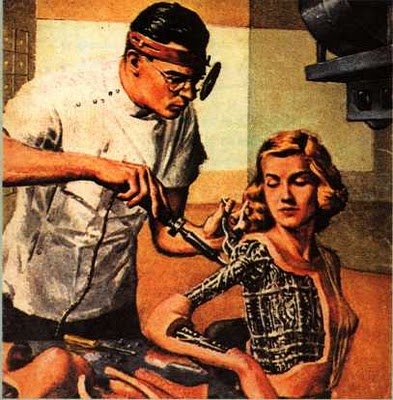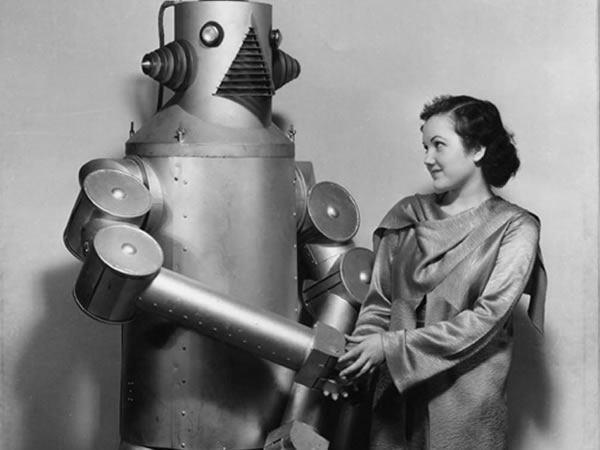 Genetic tests to screen individuals for a predisposition to obesity or cancer or some other health-threatening condition are a great thing, but they need to be uncoupled from workplaces. Companies can claim to remain unbiased toward workers who shows tendencies of poor future health, but insurance costs incentivize misuse of such information. Right now the costs of the tests make them a prime perk for employers to offer to those who voluntarily want subsidized lab work, but those prices shouldn’t remain prohibitive in the long run. Going forward, it’s more a question of what corporations will be legally allowed to require. I have a feeling, though, they’ll find out regardless.
Genetic tests to screen individuals for a predisposition to obesity or cancer or some other health-threatening condition are a great thing, but they need to be uncoupled from workplaces. Companies can claim to remain unbiased toward workers who shows tendencies of poor future health, but insurance costs incentivize misuse of such information. Right now the costs of the tests make them a prime perk for employers to offer to those who voluntarily want subsidized lab work, but those prices shouldn’t remain prohibitive in the long run. Going forward, it’s more a question of what corporations will be legally allowed to require. I have a feeling, though, they’ll find out regardless.
The opening of Rachel Emma Silverman’s WSJ report:
Employers want workers to know what’s in their genes.
A handful of firms are offering employees free or subsidized tests for genetic markers associated with metabolism, weight gain and overeating, while companies such as Visa Inc., Slack Technologies Inc., Instacart Inc. recently began offering workers subsidized tests for genetic mutations linked to breast and ovarian cancer.
The programs provide employees with potentially life-saving information and offer counseling and coaching to prevent health problems down the road, benefits managers say.
Screening for genetic markers linked to obesity is the latest front in companies’ war on workers’ weight woes.
Obesity-related conditions such as Type 2 diabetes comprise a large share of overall health-care costs, estimated to run more than $12,000 a worker this year, according to a recent survey from Towers Watson and the National Business Group on Health.
Employers are hoping to help bend the cost curve—and make their workers healthier—by more aggressively targeting obesity and coaxing workers to lose weight.•

